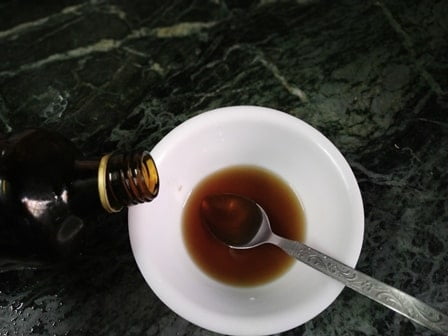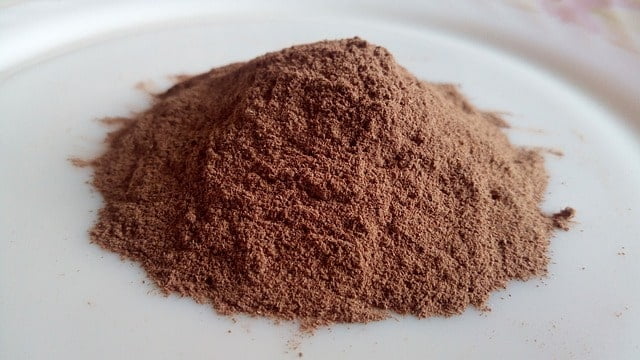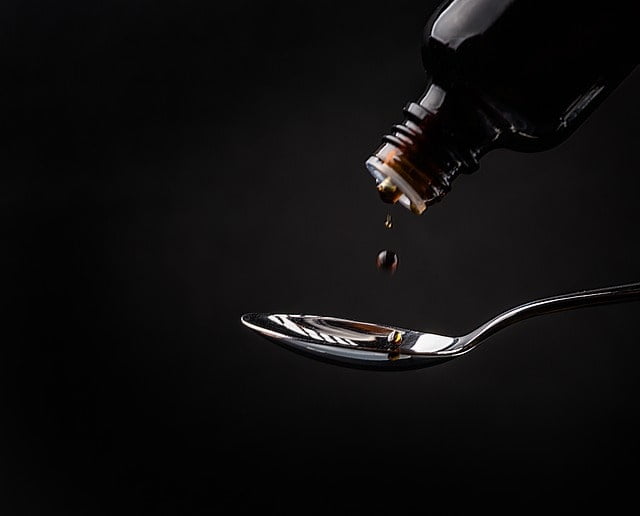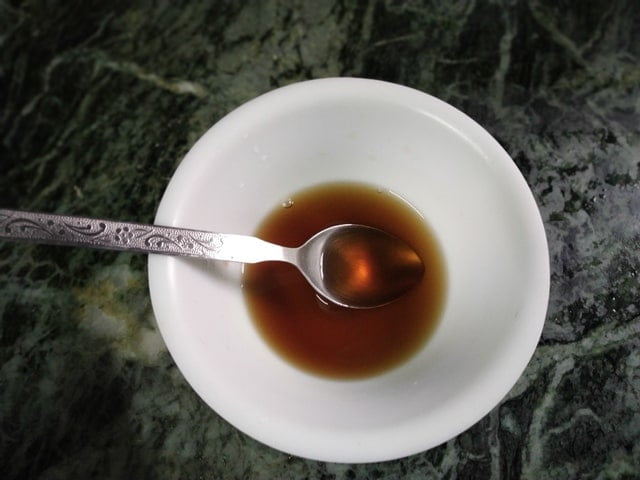What is Arjunarishta (Parthadyarishta)?
Friends in this article I am going to explain to you a great herbal concoction called Arjunarishta, which has been used as a remedy for over 2,000 years.
Conventionally, it was recommended by Ayurvedic doctors as a cardiac-tonic to maintain heart health and cure heart-related issues.
Arjunarishta is a liquid herbal medicine that is made by the method of fermentation of ingredients like Arjuna (stem bark), Madhuka flowers, Dhataki flowers, Mrudvika (dry grapes or Draksha), and Jaggery in a natural way.
Since its main ingredient is Arjuna, it is known as Arjunarishta. It is also called Parthadyarishta.
Friends, it is a very useful medicine for heart-related diseases. According to Ayurveda, without considering any Dosha (such as Vata, Pitta, and Kapha) it can be used in all types of heart diseases. But it proves to be more beneficial in Pitta-dominant symptoms.
Arjunarishta (Parthadyarishta) is very helpful in the normal functioning of the arteries and it also strengthens the muscles of the heart so that the heart can properly perform its function of transporting blood throughout the body.
This concoction is greatly beneficial in heart-related disorders such as high blood pressure, ischemia, congestive heart failure, myocardial infarction, abnormal heartbeat, etc.
Though the main ingredient of Arjunarishta is the bark of the Arjuna tree, that’s why it is very useful in heart-related diseases.
What are the Ingredients of Arjunarishta (Parthadyarishta)?
Friends, now I will tell you about the ingredients required for making Arjunarishta. These are:
1) Stem bark of Arjuna tree ( i.e. Terminalia Arjuna )
2) Mrudvika ( Draksha or dry grapes )
3) Madhuka flowers
4) Dhataki flowers
5) Jaggery
6) Water
| INGREDIENT | QUANTITY | COMPARATIVE WEIGHT | |
| 1 | The stem bark of the Arjuna tree | 1 kilogram | 5 parts ( or 5x ) |
| 2 | Mrudvika (Draksha or dry grapes) | 500 grams | 2½ parts ( or 2½ x ) |
| 3 | Dhataki flowers | 200 grams | 1 part ( or 1x ) |
| 4 | Madhuka flowers | 200 grams | 1 part ( or 1x ) |
| 5 | Jaggery | 1 kilogram | 5 parts ( or 5x ) |
| 6 | Water | 10 liters | 50 parts ( or 50x ) |
What is the Method of Making Arjunarishta (Parthadyarishta)?
To make Arjunarishta, firstly, its main ingredient arjuna is washed and sun-dried.
After that arjuna is powdered and sieved to remove impurities and solid particles.
Madhuka flowers, Dhataki flowers, and Mrudvika (which are aromatic herbs) are also cleaned, dried, powdered, and sieved.
Then take 1 kg of powdered Arjuna’s stem bark, 200 grams of Madhuka flowers, and 500 grams of Mrudvika ( Draksha or dry grapes ) in a container, and put 10 liters of water in it.
Mix all these ingredients properly, and heat this mixture on a low flame.
Stir it occasionally.
You have to keep this mixture on the flame until the water remains one-fourth, that is, 2 ½ liters, then remove it from the flame and let it cool down.
When this decoction cools down, add 200 grams of Dhataki flowers and 1 kg of jaggery.
Mix this mixture well, close the lid of the container and keep it in a dry, ventilated, and shady place for 1 month.
After one month remove this container from that place and filter the fermented liquid through a muslin cloth to remove solid particles and impurities.
And the liquid part you get after sieving is Arjunarishta.
What are the Uses and Health Benefits of Arjunarishta (Parthadyarishta)?
Friends, now I will explain to uses and health benefits of Arjunarishta. And these are:
1) Arjunarishta is Very Beneficial for the Heart Health
Conventionally, Arjunarishta has been in use as an herbal tonic to support heart health.
This herbal medicine is very helpful in the normal functioning of the arteries and it also strengthens the muscles of the heart so that the heart can properly perform its function of transporting blood throughout the body.
It helps to control cholesterol levels. Friends, as it contains plenty of polyphenols and flavonoids such as arjunone, arjunolone, etc. which are very beneficial for the heart.
It improves the efficiency of the heart so that the heart maintains blood circulation throughout the body.
Studies conducted on animals suggest that the Arjunarishta and its ingredients may lower triglyceride, cholesterol, and blood pressure levels, which are the three main risk factors for heart disease (1).
One study conducted on high-fat-fed rats revealed that both Arjunarishta and Terminalia arjuna (Arjuna) extract considerably reduced systolic blood pressure, fasting blood glucose, triglyceride, and total cholesterol levels, compared with rats that did not receive either treatment (2).
It is an important Ayurvedic medicine recommended by most Ayurvedic doctors for heart diseases.
2) Arjunarishta is Rich in Antioxidants
Antioxidants are the substances that neutralize free radicals and this free radical damage is associated with chronic conditions like type 2 diabetes, heart disease, and cancer (3).
Many ingredients in Arjunarishta, such as T. arjuna (arjuna), V. vinifera (dried grapes), and W. Fruticosa (Dhataki), contain compounds that function as antioxidants, including glycosides, flavonoids, triterpenoids, and phenolic acids (4, 5, & 6).
Thus, Arjunarishta is rich in antioxidants. Its ingredients such as Arjuna, Mahuye flowers, and Daraksha (dried grapes) make it richer in antioxidants like polyphenols and flavonoids. Thus, it also acts as a good health tonic.
Its regular intake provides better antioxidants to the users and it also helps to keep the body healthy.
After consulting the doctor, any person older than 50 years of age can also use it as a general tonic.
Also, test-tube studies and studies conducted on animals have shown that antioxidants found in T. arjuna (arjuna), V. vinifera (dried grapes), and W. Fruticosa (Dhataki) suppresses the growth and spread of cancers in the liver, stomach, and more (7, 8, & 9).
Though, it’s not clear whether taking this herbal liquid would create similar results, as these studies were conducted using concentrated extracts. And also it’s not clear whether these benefits would apply to humans.
3) Arjunarishta Benefits in Respiratory Problems
It is also very beneficial in respiratory problems. It removes the accumulated phlegm from the respiratory airways so that the respiratory system works well.
Arjunarishta is beneficial in respiratory problems like bronchitis, COPD, asthma, etc. Its regular consumption increases the efficiency of the airways and improves lung health, which makes the whole respiratory system works better.
4) Arjunarishta is Helpful in Controlling Blood Pressure
Substances like phytochemicals present in Arjunarishta help in controlling blood pressure.
Also, due to the cardio-tonic property of arjuna, (its main ingredient), this syrup is helpful in curing mild to moderate hypertension conditions.
And in severe conditions, when it is used along with Jahar Mohra Pishti, Sarpagandha powder, or Mukta Pishti, the combination provides quick relief.
Therefore, its regular intake is beneficial for high blood pressure.
5) Arjunarishta May Enhance Male Fertility
This herbal syrup plays an important role in improving male fertility.
Arjunarishta has powerful spermatogenic properties which are very beneficial in treating low sperm count (oligospermia), and reduced sperm motility (asthenozoospermia), and it also enhances sperm production (spermatogenesis).
This tonic is a good source of natural antioxidants also increases the production of male hormones such as testosterone and helps in conditions like erectile dysfunction.
6) It Maintains the Normal Heartbeat
Arjunarishta also helps in maintaining the normal heartbeat i.e. it normalizes the heart rate and is helpful in treating cardiac arrhythmias or heart rhythm disorders.
If someone’s heartbeat becomes too fast (tachycardia), or if someone’s heartbeat becomes too low (bradycardia) Arjunarishta protects from abnormal heartbeat and maintains a normal heart rate.
What is the Dosage of Arjunarishta (Parthadyarishta)?
Friends, you have to take 15 ml of this herbal liquid with an equal amount of water in the morning and evening.
That is, 15 ml (3 teaspoons) of Arjunarishta mixed with 15 ml of water.
This herbal liquid should be consumed after eating food in the morning and evening.
Its dose should not exceed 60ml in a day.
However, the effective therapeutic dosage of Arjunarishta syrup may vary from person to person depending on the severity, age, and condition of the patient.
Always consult with your ayurvedic doctor before taking Arjunarishta, as he or she will prescribe you the correct dosage for a specific time period.
What are the Side Effects of the Arjunarishta (Parthadyarishta)?
Now the question also arises whether Arjunarishta has any side effects or not.
Then the answer is that if it is consumed according to the advice of the doctor and in the prescribed dosage then it doesn‘t cause any side effects.
The prescribed dose means 15 ml in the morning and 15 ml should be taken in the evening and this dosage should never exceed 60 ml in a day.
Its maximum dose is 60 ml, and if taken beyond this amount it can cause adverse reactions such as reduced blood pressure (hypotension), headache, dizziness, etc., otherwise it has no side effects.
People with diabetes should consume this syrup with caution because it contains jaggery and its overconsumption can spike their blood sugar levels.
It is a very good Ayurvedic medicine and if consumed according to the doctor’s instructions, it benefits a lot in heart diseases.
Final Word
Arjunarishta is a wonderful herbal syrup that has been in use since ancient times. It is a herbal liquid that does not need any external phenomenon or chemicals for its manufacturing.
Arjunarishta syrup is highly important in treating cardiac problems like congestive heart failure, angina pectoris, heart blockage, myocardial infarction, cardiac arrhythmia, etc.
The various herbs used for making this syrup also increase its efficacy in treating respiratory problems. If taken in the proper prescribed dosage, one can get its countless health benefits without any side effects.
Frequently Asked Questions
Who should not consume Arjunarishta?
It should not be consumed by diabetics, pregnant women, and lactating mothers (who breastfeed their children).
Can Arjunarishta be consumed before or after meals?
It is advisable to consume this syrup after meals with water, twice a day.
Does Arjunarishta contain sugar?
Yes, it contains sugar (in the form of jaggery), and diabetic patients should use it only after consulting with their doctors.
Should I consume Arjunarishta with water?
Since Arjunarishta is a concoction, it must always be consumed with an equal amount of water.
Can Arjunarishta be addictive?
No, it is not addictive.
Can Arjunarishta be consumed with alcohol?
Since it contains 6-12% of self-generated alcohol, it should not be consumed with alcohol.
—————————————–
References:
1) Know Your Risk for Heart Disease
https://www.cdc.gov/heartdisease/risk_factors.htm
2) Anti-hyperglycemic and anti-hyperlipidaemic effect of Arjunarishta in high-fat-fed animals
https://pubmed.ncbi.nlm.nih.gov/29249636/
3) Oxidative Stress and Cancer
https://pubmed.ncbi.nlm.nih.gov/30767733/
4) Revisiting Terminalia arjuna – An Ancient Cardiovascular Drug
https://pubmed.ncbi.nlm.nih.gov/25379463/
5) Pharmacological evaluation for the anti-asthmatic and anti-inflammatory potential of Woodfordia fruticosa flower extracts
https://pubmed.ncbi.nlm.nih.gov/24405177/
6) Antioxidant and antiproliferative activities of twenty-four Vitis vinifera grapes
https://pubmed.ncbi.nlm.nih.gov/25133401/
7) Enhancing the Cancer Cell Growth Inhibitory Effects of Table Grape Anthocyanins
https://pubmed.ncbi.nlm.nih.gov/30070707/
8) Effects of Terminalia arjuna bark extract on apoptosis of human hepatoma cell line HepG2
https://pubmed.ncbi.nlm.nih.gov/16534840/
9) Antiproliferative effect of Woodfordia fruticosa Kurz flowers on experimentally induced hepatocellular carcinoma in rats and in human hepatoma cell line
https://www.sciencedirect.com/science/article/pii/S0974694313000777
—————————————–
Disclaimer: This article is intended for informational purposes only. Any information associated with this article should not be considered as a substitute for prescriptions suggested by local health care professionals. You should consult with your doctor before taking any medicine.
—————————————–
Recommended Articles:
1) Abhayarishta: Uses, Health Benefits, Dose, Side Effects
2) Dashmularishta: Uses, Benefits, Dosage, & Side Effects
3) Chandanasava: Uses, Benefits, Dosage, & Side Effects
4) Lohasava (Lohasavam): Uses, Benefits, Dose, Side Effects
5) Ashokarishta Syrup: Uses, Benefits, & Side Effects
—————————————–



